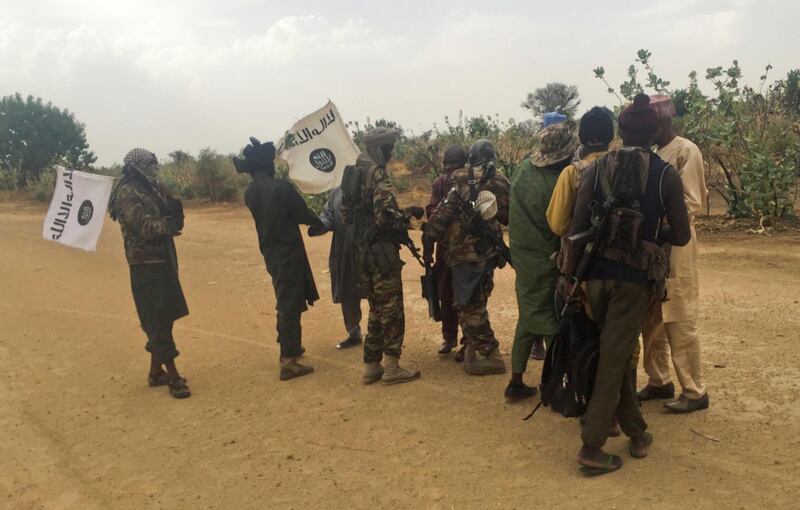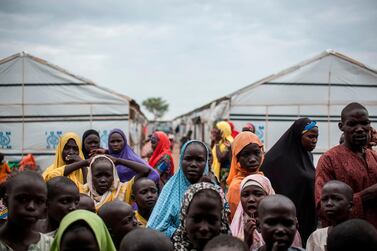Nigeria's Boko Haram militants killed at least 60 people in a "devastating" attack on a northeastern border town, rights group Amnesty International reported.
The assault on Rann was one of the deadliest by the extremist group in its nearly decade-long insurgency, Amnesty said.
Fighters on motorcycles drove through the town near the Cameroon border on Monday morning, setting houses on fire and killing people left behind, the rights group said in a series of Twitter posts. The fighters also chased residents fleeing the "massive attack" and killed several outside the town.
Amnesty published satellite imagery that it said showed "hundreds of burned structures." Many likely served as shelters for displaced people who had arrived in recent months seeking protection. Most of Rann is "now destroyed," the group said.
We condemn #BokoHaram for consistently and deliberately targeting civilians in #Rann: killing people and burning structures. Burned structures after #BokoHaram attack of Monday in #Rann: pic.twitter.com/BxojShLaAR
— Amnesty International Nigeria (@AmnestyNigeria) February 1, 2019
The attack came as Nigeria faces what it has called an extremist resurgence, posing a serious challenge for President Muhammadu Buhari as he seeks re-election in two weeks' time. His administration once claimed Boko Haram had been "crushed" or "technically defeated," while the military has faced questions over low morale and support.
Witnesses told Amnesty that soldiers had left their posts the day before the attack. There was no immediate military statement. But a new report on Friday by the United Nations noted the "recent withdrawal" of the Multinational Joint Task Force, a regional counterterrorism entity, after its fighters secured the town following a mid-January attack.
"When the military left, we had no other possibility but to leave," one Rann resident who fled to Cameroon, Kellou Maloum Modu, told the UN.
The mid-January attack sent at least 9,000 people fleeing to Cameroon, the UN refugee agency said, and added that it was "extremely alarmed" at reports that Cameroon sent several thousand back. More than 30,000 others fled into Cameroon in late January, while thousands more fled to nearby Chad.
"Many people were in a state of shock and were clearly distressed by what they had witnessed. Now they have lost all that they have," Hugues Robert, the Nigeria programme director for Medecins Sand Frontieres, said after the mid-January attack.
A nurse with the medical charity said the normally bustling town had become "like a graveyard", with fires still burning in places. "All that's left are piles of ashes," Isa Sadq Bwala said.
What many in Nigeria call Boko Haram includes a powerful recent offshoot, the Islamic State West Africa Province, whose violent activities grew last year while those of Boko Haram dropped, according to the US-backed Africa Centre for Strategic Studies. It was not immediately clear which faction was behind Monday's attack.
Far-flung Rann has played a tragic role in Nigeria's fight against Boko Haram. In January 2017, Nigeria's air force mistakenly launched an airstrike on a refugee camp in the town because it said the camp was not appropriately marked as a humanitarian base on its maps. Officials and community leaders said between 100 and 236 people were killed.
In March last year, three workers for United Nations agencies were among 11 people killed in a Boko Haram attack on a military base in Rann.
Three health workers were abducted. Two have since been killed despite urgent pleas from the aid community to spare their lives.






